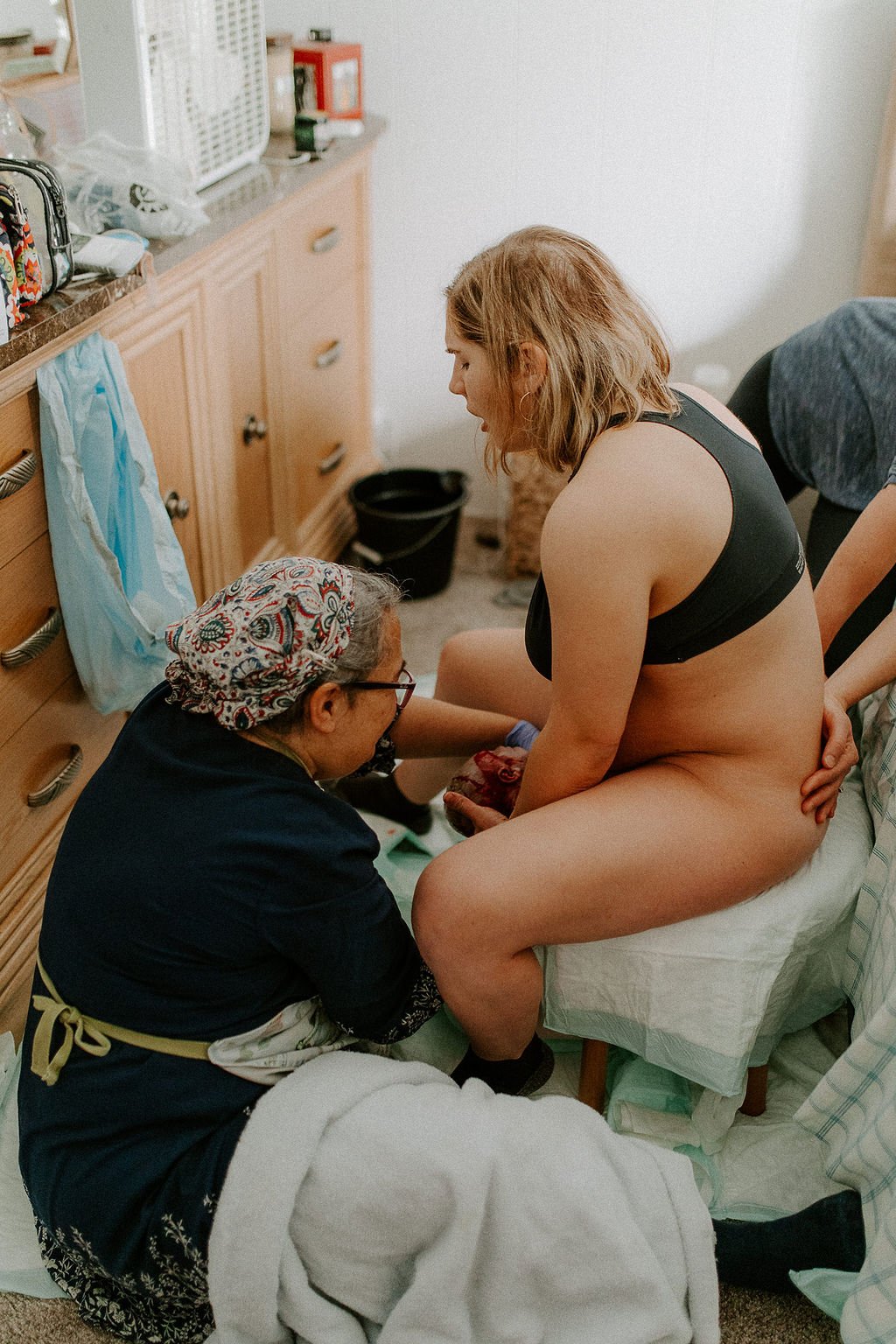FAQ’s in Planning Your First Natural Birth: What You’ll Want to Know
Whether you are going natural or medicated, birth can be so intimidating for a first time mom. You hear horror stories and so much advice from moms with experiences that range from at-home water births to hospital C-sections. And if no two births are the same–how do we prepare, especially for a natural birth? Here are answers to some of those burning questions from moms planning their first natural birth!Why Natural Birth Taps Into an Unknown Strength
FAQ #1: What does transition feel like, and how painful is it?
It’s no secret that birth is extremely painful. I believe that a woman’s body was made for birth, and there are so many techniques in planning your natural birth that you can prepare to handle the pain. But, it still REALLY hurts. As one wise natural birth mama put it, “Transition is stinking hard, but it means you're almost done. The pushing feels like you're pooping–literally.” “Transition is stinking hard, but it means you’re almost done.”
Transition is the second to last stage of active labor. During non-medicated births, you can expect to hear moms say things like “I can't do this anymore,” “I need a break,” or “This is too hard.” As my husband and birth partner to our three children likes to put it, it’s when we start talking “a little cooky.” (Look here for how I define “natural/non-medicated birth” versus “medicated birth”) It's very common for mothers to verbalize how “done” they are at this stage. Even for mothers who have given birth countless times, your body takes over and your mind loses hope. This is why it's so important in planning out your natural birth to have an incredible birth team.You need to surround yourself with family and friends who will look you in the eyes telling you how strong you are and how great you're doing. A mom’s ability to literally push through her labor can come down to the encircling encouragement and love of her birth support team. This is a KEY!“A mom’s ability to literally push through her labor can come down to the encircling encouragement and love of her birth support team.”
What helped you the most in getting through this phase?
Because I know there is actual POWER in our words, I realized I needed to speak them out loud myself. In my head, I was thinking things like: “I can't get through another contraction. I'm done. I can't.” So I said out loud at the beginning of each back-breaking contraction: “I CAN DO THIS.” It wasn't because I believed it, but because I needed to hear myself say it. “So I said out loud at the beginning of each back-breaking contraction: “I CAN DO THIS.” It wasn’t because I believed it, but because I needed to hear myself say it.”
The mother may also throw up, shake uncontrollably, or find herself completely in the zone with contractions coming back to back without much of a mental break. It's still common to have the shakes even with a medicated birth as a result of your body's hormones doing what they're supposed to do. Read about how I experienced an almost five-minute contraction right here!Getting Through the Final Stages of Labor
FAQ #2: How do you mentally prepare for the “ring of fire”?
The “ring of fire” is a labor term that describes when the baby's head is crowning and the vagina is spread open to the max. Those few seconds that feel like they last forever are more specific to natural birth because nothing has been numbed down there. So you feel everything as you push out your baby. Fortunately, the pain only lasts a few moments, maybe a minute or less. What was your personal experience like at this stage?
I remember it fully, but I was mentally prepared for this stage after all the planning I had done for my natural birth. I knew I was so close to the end! It was still scary because I didn't want to tear. I trusted my midwife to help me and I listened to her instructions when it came to gently pushing. I also used Organic Perineal Balm to lubricate the vagina in preparation for the baby's head. This can't be done if you're giving a water birth, but if the mother comes prepared with oil in hand, this is shown to help prevent vaginal tearing.The Part of Labor We Don’t Discuss Enough
FAQ #3: How should I prepare and what can I expect during postpartum healing?
Not enough moms who have gone through both medicated and natural births are prepared for the postpartum healing process. They aren’t ready for how long it takes to heal and how much it can hurt. This often means lying in bed for days after your birth feeling completely physically wrecked by the experience.The timeframe for post-birth healing also seems to be a surprise for first-time moms. We expect pain during labor, we may even expect vaginal tearing, but what we don't have conversations about are the first weeks following birth. Following 24-48 hours of staying awake, painful contractions, vomiting, and no food intake, it shouldn't come as a surprise that you want to stay in bed with your newborn for a few days.I personally believe that tears and complications are likely to happen regardless of the birth plan. However, when mothers are planning a natural birth, they are likely to be knowledgeable about the ups and downs of labor as well as possible complications and tearing. When the mother and birth partner come head to head with those experiences, they are more prepared to handle it. I suggest hiring a doula for some of those first days following birth. She will arrive knowledgeable and prepared to care for mother and baby in the best way. It's also smart to limit house calls until you're really ready. If visitors come, never be afraid to ask for help such as meals, baby items, or time to rest. Remember, your body took nine months to prepare for this. Give yourself at least a year to recover both physically and mentally, and be patient with the results.Are you planning for your own natural birth? I would love to help you prepare!


































